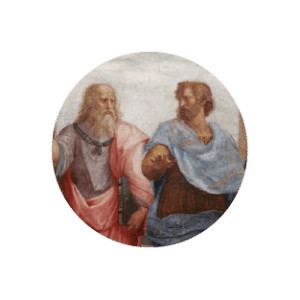Death is a deprivation, the deprivation of life, but as a Scorpio it reflects a passion for positivity as it also represents the deep passion for existence. This is how a Scorpio holds a paradoxical aspect, a sort of contradiction where the experience of death is a deep expression of passion for life. The philosopher Heidegger sees the horror of death as a moment where man faces himself: death isolates him from the world and his surrounding reality. One, present before death, perceives himself as a person and not an object. The horror of Scorpio death restores one’s unique place in the universe and becomes devoid of the illusion that he is part of the world. In Albert Camus’ (Scorpio, 7.11.1913) book “The myth of Sisyphus” (1990, p. 61), he claims death has a cleansing force; “left with yourself, defenseless, in front of God”.
In a more extreme extent, Camus’ play “Caligula” features Caligula, who ruled Rome in the years 71-73 A.D., killing a man only to experience death. Caligula represents the extreme of the Scorpio, experiencing death in a sense of “I kill, therefore I am”. He strangles his mistress, has intercourse with a woman in front of her husband and combines the elements of sexuality, extreme and death of the Scorpio the a cycle of madness, sex and killing. It is a type of nullifying all norms with ruthlessness and brutality. Castrated subjects, raped women, tribunes basked with blood, all a result of being possessed by Pluto.
By taking a life, the killer creates a connection with eternity, this is how probably the Scorpio Charles Manson (12.11.1934) thought about killing Sharon Tate (the Spouse of Roman Polanski) in August 9, 1969, being 8 months pregnant. Manson hypnotized his victims and he went on an insane murder spree in California, addicted to the offerings of hate.
Jean Genet also has traits of Scorpio extremity. His play “Deathwatch” features a killer called “Green Eyes”, where his killings grant him ecstasy. From a psychological perspective, crime, especially murder, in its extremity grants a clear-cut identity; a murderer is a definitive identity stigma. If one doubted his identity due to a chaotic mind; the stigmatization and classification of being a murderer will give an undoubted identity. As for society, the moment he is tagged and jailed, the “dirt” and evil is in his hands, and society gets cleansed; the murderer takes the evil on himself with a weapon. For a Scorpio, the emptiness and the eternity in the jail cell is part of the cleansing mechanism. It is a descent into hell that brings with it the collective sin of the society.
Powerful conjunctions between extreme behaviors, death and sex, are portrayed to us by famed Japanese Author Yukio Mishima. To Mishima, death is beautiful, ecstatic and erotic, such as in one of his books, a woman stands in front of the ocean and the gods of the sea strike her and enter her. In his books he kills his protagonists during sexual contact, a form of suicide during an act of love. Mishima wanted the bushido way, the Scorpio samurai soul that demanded the samurai to live out his death every day, determine how he dies, to have a grip on his death. To Mishima, an early death is a preservation of youth, an escape from aging. In 25.11.1970, Mishima invaded a Tokyo naval military base. Hundreds of soldiers were forced to listen to his speech about the deterioration of Japan. At the end of his speech he committed seppuku in public. Mishima chose to end his life at the age of 45 when he is at his prime, at an honorable ceremony of the samurai, wearing a green Kamikaze band on his forehead. Mishima died in an ancient Scorpio ceremony, as to him, death is a triumph over aging time. This triumph of youth is an erotic experience being that it grants meaning to life by the way a person dies.
Animals such as the snake and the eagle represent the Scorpio. The snake in myths and folklore is a phallic symbol representing sexuality. In the Zoroastrianism of good and bad in ancient Persia, the evil god Ahriman, rules secular creation and views lust and Jahi- the seductress, as the basis and ‘cornerstones’ of his kingdom. This is in contrast to Buddha, who is against Kama – sensuality, since Scorpio sex ties humans to repeating cycles of rebirth, the Samsara –is the eternal existence in physical body and the dimension of time. Sex for a Scorpio is a way to get into the physical Gnostic jail of body and time, it is decreasing eternity for his soul.
This raises an interesting thought: The feelings of guilt and shame that exist deep within the Scorpio might derive from sex being seen as a brutal action of inserting seed in religion. Catholicism identifies love for god as opposed to love for body. Countless holy characters in Catholicism chose death over willing sex, such as Lucretia in Titian’s creation, the renaissance artist who painted the saint committing suicide after being raped by blade wielding Tarquinius.
The Scorpio links within itself a feeling of guilt and shame in everything related to sexuality. The sexual act and the physical enjoyment resulting in an orgasm are an unequivocal proof for physical existence, departure from God’s grace into a sinful and secular world. Author Karen Armstrong describes Augustine in “A History of God”; Augustine believed that God cast an eternal curse over humanity as a result of Adam’s sin. The curse was inherited by all of his descendants through intercourse, which was polluted as a result of materialistic greed – the irrational longing for materialistic pleasure as opposed to God, especially during intercourse, where our rational is completely overcast by lust and emotion, and God is forgotten as humans shamelessly pleasure with each other. This explains the pure body of the Virgin Mary.
From a Scorpio perspective, the physical body creates a duality where one part satisfies sexual pleasure, but at the same time you have to face the destructive nature of that same pleasure. The Scorpio, if such, mediates between the physical (Taurus) and spiritual, using sexuality. This mediation holds a dilemma between cleanse and sin, soul and flesh. Sex, as mentioned, is a tool for creating life in a physical sense, but it may also be the opposite, asking to be freed of your physical body in certain situations. This absurd state is portrayed by the inquisitor wielding white-hot iron, torturing his interrogate and forcing him to confess his “sins and crimes”. The victim now is in a state opposite to the Scorpio sexual pleasure, undergoing indescribable suffering and all he wishes is to be free of physical existence, to be free of his physical body which is now a burden and unnecessary, that you can only wish to shed away at moments like these. The only thing the miserable victim wants is to separate his soul from his physical body. That way Rabay Akivah cried out to his students, when the Romans tortured him – “this is how I mostly feel my soul gets closer to God”
The victim, if so, now believes with all his soul in God (Even if he weren’t a religious person before) and his ready to come to him as soon as possible. Torture and Sexuality meet in the Scorpio like a junction where spirit and physical meet. This is a total separation between mind and body where the torturer uses the tortured victims own tool of sexuality, to turn them into an avid believer. The inquisitor, the torturer, cleanses the victim, and is an unequivocal separation between heaven and earth. Such a scenario occurs in room 101 in George Orwell’s book 1984; naked Winston Smith stands in front of a rat cage. In order to escape from the terror that interrogator O’Brien (played in the movie by Scorpio Richard Burton (10.11.1925) is about to inflict, he must change his identity, give up his body and live as a spirit. He must believe that two plus two equals five and love this incorrect mathematical equation. It is giving up on external truth, on his sexual relationship with his lover Julia. O’Brien tortures Winston so that he can only trust his inner world, and abandon the outer world.
Spies, Traitors and Investigations
The Scorpio world is a world of “down under”, hidden deep below the surface, shrouded with darkness. According to the mythology, when Plutus emerges to the surface, he wears a helmet that turns him invisible. The astrological Scorpio is close the world of spying, secrecy, money, temptations, sexuality and struggle. In astrological sync so was born world famous secret agent James Bond, on November 11th, 1920. He also died as a phoenix and resurrected as he “only lives twice” in the famous movie (1967). The money aspect of the Scorpio is portrayed in the movie “Goldfinger” (1964), showing an attempt to rob Fort Knox of its gold. As in other creations written by Ian Fleming, the Scorpio secret agents represent the ideas of betrayal, vengeance, slander, vengeance, jealousy and materialism.
The secrecy of the Scorpio gives one a sense of power. The spy knows secrets, and sometimes acts as a double agent. John La Carre presents us a deep analysis of the Scorpio Spy’s soul in his novels “The Spy Who Came in from the Cold” (1963), “Tinker Tailor Soldier Spy” (1974) and “Smiley’s People” (1980). In his novels he claims that the shame and inferiority do lead to betrayal, vengeance and a need for attention, dignity and recognition, and also the need to fit in with the ones who are obligated to accept me because of what I know as a spy. To be a traitor you must first be part of something, said the spy who left from Britain to Russia in 1963. Behind every betrayal lies the wish to destroy, win recognition, and to be accepted into the opposing side of your original identity, in a way that leaves no return. It is a wish for identity and recognition. Betrayal in psychological view is a Scorpio vengeance. In a slightly philosophical outlook, vengeance is also a type of rejecting chronological time, a Scorpio renewal against the dreaded past. The traitor and the betrayed will both feel and remember the reason for the act. But the psychological path for the Scorpio does not end here; a deeper wish for Scorpio is the wish of death deep within the soul of the traitor/spy. In many cases, the traitor ends up being executed. The traitor confirms our identity as a group since now he is out of it; we know exactly who we are as we are not him, definitely not him. The spy/traitor from an astrological point of view is our need for an impure martyr to cleanse us, as if there lacks one, the impure ones might be us. Being betrayed cleanses us and proves that we are just. And as for secret organizations who are also generously funded remind us again the mythological source of Plutos that lives beneath the earth but is considered richer than Jupiter. The secret organization is funded by creating a Scorpio fear (and fear is a Scorpio motive) over state security: “We know, we hear”, “We receive information that cannot be published.” There is a need for a lot of money in order to get this information. The more afraid we are – the larger their budgets. We are in danger most of the time of course!
In the depths of the Scorpio soul lie feelings of vengeance and inferiority. These properties lead the Scorpio to crime on one hand and on the other police work and secret organizations alike. So the inquisitors represent the Scorpio need of investigation and skepticism, and serve the need of framing and revealing one’s blames. Kafka, Galileo, Joan of Arc, the Moscow Trials, all point to the Scorpio investigator, the one seeking confession, determined to get one no matter what, with repeating endless questioning. The moment of confession is the Scorpio orgasm of the investigator. The “dirt” has moved to the criminal, he confessed, we are clean. Someone has to accept the sin and dirt, that is until the next investigation. Make no mistake, the investigator doesn’t work in the name of state, but rather uses it to cleanse himself.







